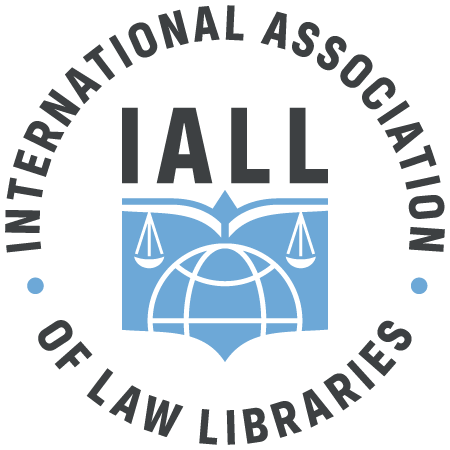Article 19 of the Universal Declaration of Human Rights, recognizes access to information as a right every individual possesses.[1] In this sense, universal access to information today is not only enshrined in the Universal Declaration of Human Rights, but has also been incorporated in national legislation of more than 100 countries around the world and it is also established as one of the goals of the new United Nations “2030 agenda of sustainable development”[2].
In 1985, Colombia was the first Spanish-speaking country to enshrine this principle as the right of its citizens in its domestic laws. This was an impressive effort as, at the time, apart from the Nordic countries, there were few other democratic nations anywhere had taken that step.[3]
Today, in Latin America, Mexico, Chile, Brazil and Uruguay has passed laws that guarantee access to information in more detailed and far-reaching coverage, which cover digital information systems and apply to all levels of government, both national and local. As well, besides Bolivia, Costa Rica, Cuba, and Venezuela, all other Latin American countries guarantee access to official information by law. Latin America has advanced more in this field than any other developing countries region; and, in certain aspects, even more than the European Union. Some of the Latin American laws are considered among the best in the world.[4]
In 2015, the member states of the United Nations unanimously adopted the Sustainable Development Goals, which include the promise of “guaranteeing public access to information”.[5] This new universal commitment to freedom of information and access to information represented a historic acknowledgment by the world community that this is a basic human right and, at the same time, set as an objective the achievement of all these objectives worldwide.
The right to access information is a fundamental right for the consolidation, functioning and preservation of democracy. This right also fulfills an essential instrument for the exercise of rights. The content and scope of this right has been developed in the Inter-American Human Rights System. For instance, the Inter-American Court has recognized that freedom of thought and expression includes “not only the right and freedom to express one’s thoughts, but also the right and freedom to seek, receive and impart information and ideas of all kinds. ” In this regard, the court has also pointed out that the right of access to information is covered in the right of people to receive such information and the “positive obligation of the State to provide it, in such a way that the person can have access to know that information or receive a substantiated response when, for any reason allowed by the [American] Convention, the State may limit access to it for the specific case. Said information must be delivered without the need to prove a direct interest for its obtaining or a personal affectation, except in the cases in which a legitimate restriction is applied”.[6]
Considering that most of the legislation on transparency and access to information are developed in Latin America[7], a list of advances in the region is offered below, emphasizing in one of the points considered relevant for the operation of the policy, the legal status of the recognition of the right[8].
| Jurisdiction | Legislation | Year |
| Argentina | National Law 27.275 | 2016 |
| Chile | National Law 20.285 | 2008 |
| Colombia | National Law 1712/2014 | 2014 |
| Ecuador | National Law 2004-34 | 2004 |
| El Salvador | National Decree 534 | 2011 |
| Guatemala | National Decree 57 | 2008 |
| Honduras | Legislative Decree 170 | 2006 |
| Mexico | Federal Law DOF 04-05 | 2002 |
| Nicaragua | National Law 621 | 2007 |
| Panama | National Law 6/2002 | 2002 |
| Paraguay | National Law 5189/14 | 2014 |
| Peru | National Law 27.806 | 2003 |
| República Dominicana | National Law 200-04 | 2004 |
| Uruguay | National Law 18.381 | 2008 |
[1] “Everyone has the right to freedom of opinion and expression; this right includes freedom to hold opinions without interference and to seek, receive and impart information and ideas through any media and regardless of frontiers”.
Full text available at: http://www.ohchr.org/EN/UDHR/Documents/UDHR_Translations/eng.pdf
[2] http://www.un.org/sustainabledevelopment/es/la-agenda-de-desarrollo-sostenible/
[3] Ídem p. 13
[4] http://www.freedominfo.org/regions/ (nota al pie 2 documento precedente)
[5] http://www.unesco.org/new/es/quito/education/objetivos-de-desarrollo-sostenible-ods-y-campana-e2030/
[6] Inter-American Court of Human Rigths Claude Reyes y otros Vs. Chile. September 19th, 2006. Gomes Lund y otros (Guerrilha do Araguaia) Vs. Brasil. November 24th, 2010.
[7] For further information see: De la Fuente, Gloria (2014) “El derecho de acceso a la información pública en América Latina y los países de la RTA” Revista Transparencia y Sociedad No. 2 pg. 27-51. Available at:
https://dialnet.unirioja.es/servlet/articulo?codigo=5354514
[8] Source: https://observatoriop10.cepal.org/en/resources/countries-freedom-infomation-laws-2017-latin-america-and-Caribbean
Gloria Orrego Hoyos
Professor, Faculty of Law
Universidas de San Andrés
This Blog contains entries by members of the International Association of Law Libraries on issues germane to the Association’s areas of focus. Views expressed in an individual entry only represent the views of the author.
